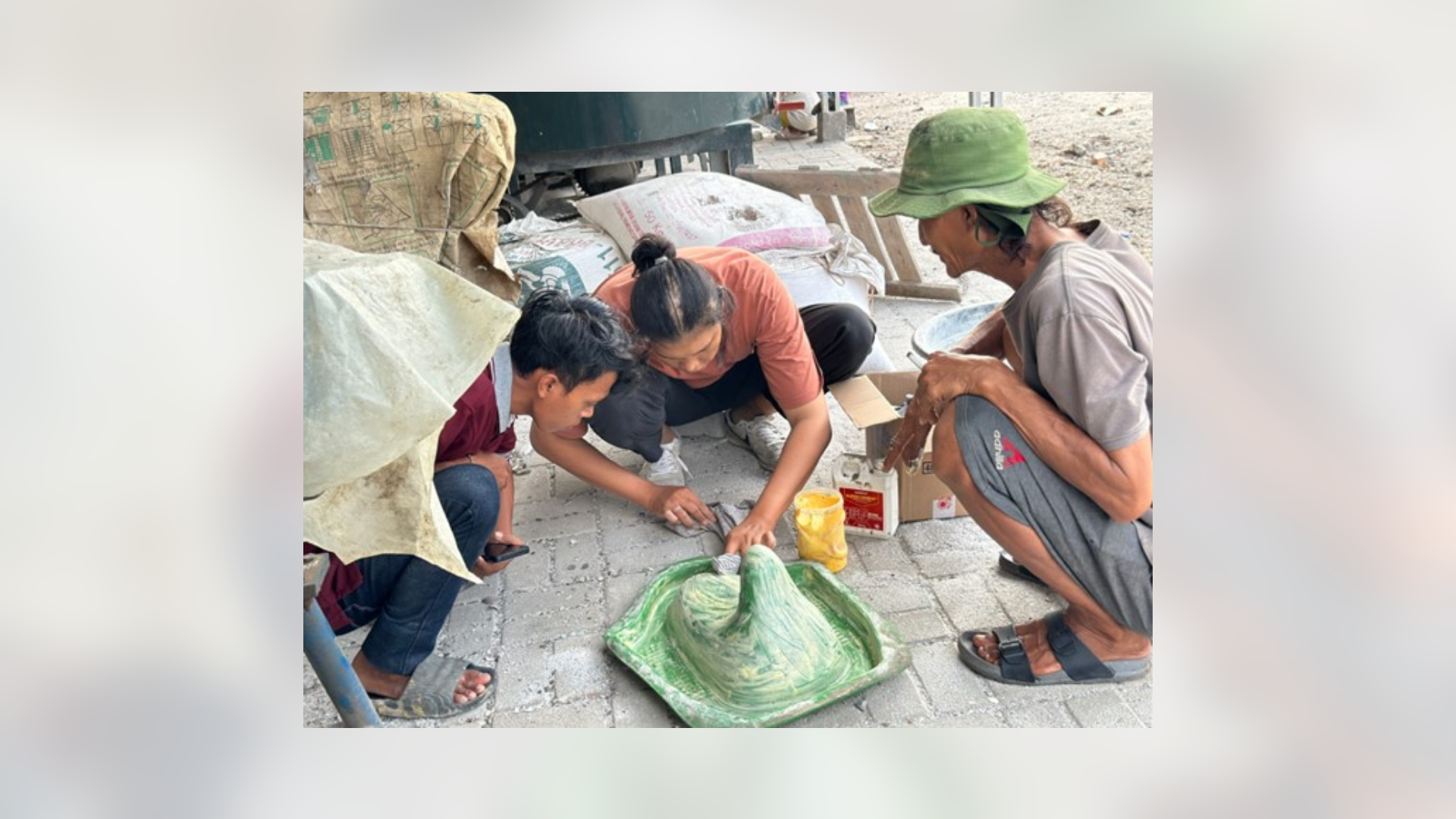October 5-November 20, 2024 | UCLG ASPAC, under the framework of the Kalibaru Hub Project, prepared a series of workshops on product and business development for the local community in the Kalibaru area, North Jakarta, to be implemented from October 5 to November 20, 2024. These sessions will help the Kalibaru community, especially the Cangkring Group, to improve their management and business strategies. For successful implementation, UCLG ASPAC has also engaged Playo to help the community with product development (including but not limited to production management, defining organisational roles, and designing a framework to streamline production) and Kumala Foundation (Yayasan Kumala) for business development skills.
In the product development, the local community were engaged in conducting:
- Existing production flow mapping,
- Production management lecturing and workshop,
- Design thinking for the production framework workshop,
- Product development workshop & production process roleplay,
- Quality control and product refinement.
They were also engaged in reviewing the production process, implementing continued product quality control, refinement, and finishing as well as in public preview.
Results of Product Development Training
Over eight training sessions focusing on product development, the process resulted in significant improvements in organisational and production capabilities.
- Production-Management
Improvements made included the identification of challenges and the defining of roles.
Result: Cangkring Community now has a structured management team, which includes roles for the management of raw material and casting.
- Operational Workflow
A role-play session was held to simulate real order handling. This session led to the development of a formal order management system, complete with necessary documentation.
Result: The community is now equipped with knowledge and skills to manage future orders efficiently.
- Skills Evaluation and Contracts
The Cangkring Group was provided with tools for evaluating performance, including performance review sheets and key performance indicators (KPI).
Result: There was facilitation for the creation of formal team contracts, ensuring all members now operate under clear agreements with defined responsibilities.
Upon completion of the eight training sessions, participants were also asked to fill out an evaluation form to assess several key aspects of the training, including participants’ understanding of the material, the effectiveness of individual sessions, the applicability of the training content to their daily activities, and overall satisfaction levels.
Training evaluation findings include:
- High Satisfaction with Training Content
Over half of the participants (55.6%) expressed high satisfaction, indicating that the content effectively met participants’ expectations and needs.
- Most Engaging Topics
Product Refinement (36.8%), Production Management (21.1%), and Quality Control (15.8%) are the most interesting. These topics were valued for their direct applicability to participants’ work
- Practical Application
66.7% of participants indicated they could apply the knowledge and skills gained during the training to their daily work
Local communities will also be equipped with a series of skills needed for developing their business, such as developing effective accounting and digital marketing. Stay tuned for further updates!












